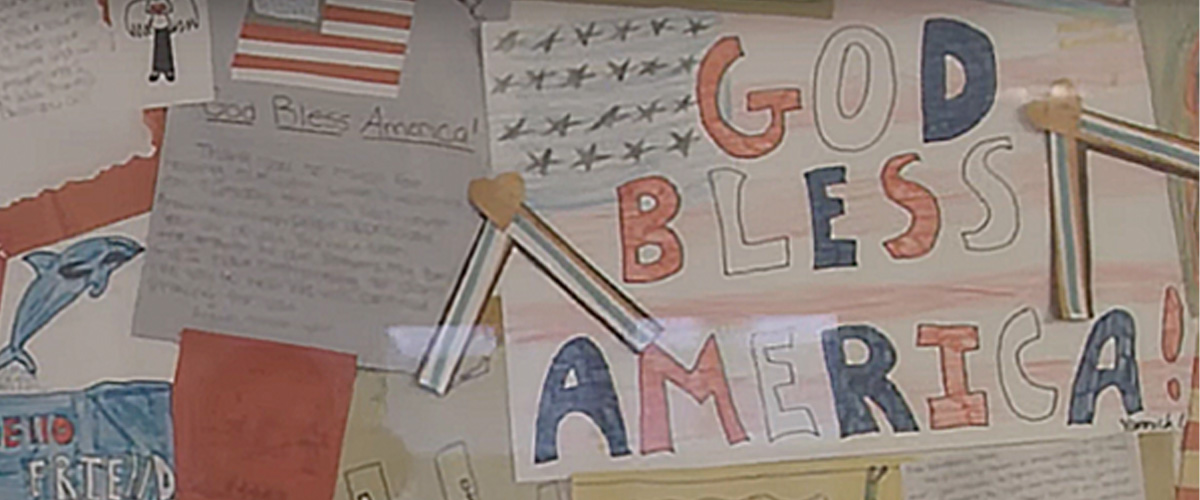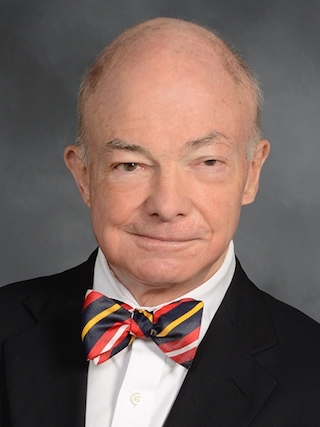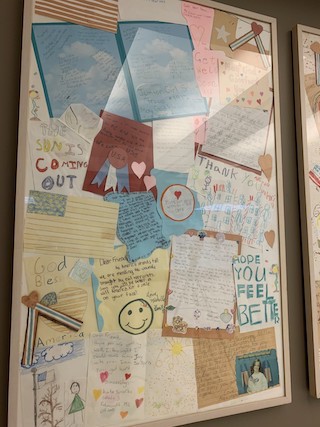Letters from Elementary School Students After September 11 Continue to Bring Comfort and Hope
A surgeon who cared for 9/11 victims at NewYork-Presbyterian/Weill Cornell Medical Center shares how meaningful the letters were for him after the tragedy, and how they still hold a special place in his heart today.

Twenty-one years ago, students from Old Mill Elementary School in Mount Washington, Ky., wrote letters for victims and frontline workers soon after the September 11 attacks. Today, the handwritten letters and drawings line several hallways at NewYork-Presbyterian/Weill Cornell Medical Center, serving as a symbol of continued healing for patients and gratitude for doctors and nurses.

Dr. Palmer Bessey
Dr. Palmer Bessey, associate director of the William Randolph Hearst Burn Center at NewYork-Presbyterian/Weill Cornell Medical Center, spoke with WDRB, a television station in Louisville, Ky., about how those letters are powerful reminders of the unity and resiliency that grew out of tragedy.
“The letters and the notes were all written beautifully. It was everybody’s tragedy,” Dr. Bessey said during the interview. “We pasted them in the hallways around the burn center from floor to ceiling in the days after the terror attack.”
The station interviewed Maryanna Brewer and Brandi Doyle who wrote two of the letters that hang on the wall. They were in second grade at the time when their teacher encouraged them to share words of support.

Letters from Brewer and Doyle still hang in the hall of NewYork-Presbyterian/Weill Cornell Medical Center today.
“I am sorry that you are injured,” expressed Brewer in her letter to patients in 2001. “Get well soon. I am praying for you,” Doyle wrote in hers.
“I think that’s just incredible. It’s amazing that after 21 years, it’s still standing there,” Brewer said in the interview.
Referring to the letters, Doyle, who is now a mom to a one-year-old daughter, said, “One day I’ll be able to show her that words do matter and your kindness matters. There’s proof right here.”
The multidisciplinary team at the William Randolph Hearst Burn Center cared for 18 severely injured patients and ultimately saved 11 of those individuals. It was letters like the ones written by Doyle and Brewer that brought light to the unit during a dark time.
“I just want to say thank you so much for doing that,” Bessey says. ”You have no idea how much it encouraged us every day.”
Watch the full interview here.
